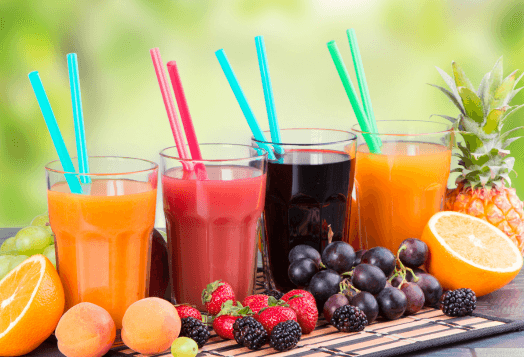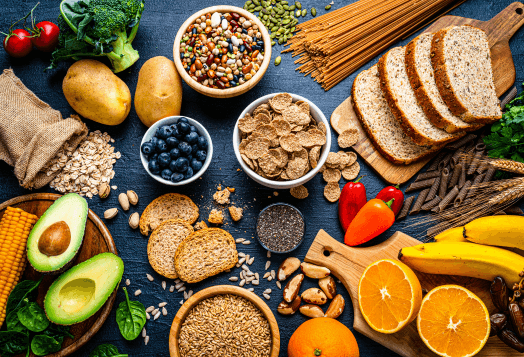Teenagers have busy lives filled with school, sports, social activities and hobbies. With such a packed schedule, making healthy food choices can take a backseat. But eating well doesn’t mean starving yourself or following extreme diets. Instead, focusing on a balanced diet ensures sustained energy, better concentration, and overall well-being.

Why Healthy Eating is Important for Teens
Teenagers undergo rapid physical and mental development, making proper nutrition essential. A balanced diet helps fuel growth, supports brain function, and strengthens the immune system.
Physical Growth and Development
Adolescence demands more protein, calcium, and essential vitamins to support bone and muscle growth. Nutrient-rich foods like dairy, whole grains, and fruits help prevent deficiencies and promote long-term health.
Boosting Brain Power and Academic Performance
A well-balanced diet directly impacts concentration, memory, and overall cognitive function. Omega-3s from nuts, seeds, and fish support brain health and improve focus. Staying hydrated is equally important, as dehydration can affect concentration and mood.
Strengthening the Immune System
A diet rich in vitamins A, C, and E, along with minerals like zinc and iron, helps fortify the immune system, keeping teens healthy and reducing the risk of illnesses. Fresh fruits, vegetables, and whole grains provide antioxidants that protect against inflammation and disease.
For a visual guide on creating a healthy meal plan, check out the Healthy Eating Plate from Harvard T.H. Chan School of Public Health.
Expert Opinion: Are there any cost-effective meal-planning strategies that help teenagers eat nutritious meals when they are away from home? Answered by Jyoti Pachisia, a nutritionist with 5+ years of experience. “Developing basic cooking skills will not only save you money but also allow you to explore various flavour combinations. For example, Overnight Oats require only a few ingredients, and you can create different variations by adding fruits, nuts, or honey. Scrambled Eggs are quick to make and can be paired with whole-grain bread for a nutritious and budget-friendly breakfast. Sandwiches, with endless filling options, are another excellent choice for a satisfying meal that won't break the bank. Investing time in developing basic cooking skills will pay off in the long run and allow you to explore various flavour combinations. Instead of buying pricey packaged snacks, try making your own at home. Makhane (fox nuts), popcorn, and roasted nuts are easy to prepare and can be customized to suit your taste preferences. For a sweet treat, consider making energy balls using oats, peanut butter, honey, and dried fruits. These homemade snacks are not only budget-friendly but also healthier alternatives to store-bought options. Preparing your snacks in bulk can also save you time and effort throughout the week. One sample breakfast recipe is Chia seed pudding: Mix chia seeds with milk and a touch of sweetener (honey, maple syrup, or agave) and let it sit in the fridge overnight. In the morning, you'll have a thick and nutritious chia seed pudding. Top with fruits and nuts.” |
A Teen’s Guide to Healthy Eating
Navigating the teenage years is a whirlwind of growth, change, and new experiences. But proper nutrition is more crucial than ever during adolescence, fueling your body for optimal growth, energy levels, and overall well-being.In this article, we will explore practical diet tips to help teens stay healthy without feeling deprived.
1. Eat Enough, but eat right
Teenagers often hear conflicting advice about eating less to stay fit. However, cutting too many calories can backfire by slowing metabolism and leading to energy crashes.
Balanced diet for teens:
Priorities whole foods like fruits, vegetables, whole grains, and lean proteins.
Avoid excessive processed foods and sugary snacks, as they cause blood sugar spikes.
Listen to hunger cues, eat when hungry and stop when full.
Tip: Swap chips with nuts or fruit for a nutrient-dense snack.
2. Priorities protein and healthy fats
A protein-rich diet helps build muscles and repair tissues, while healthy fats support brain function and hormone balance.
Sources of protein & healthy fats:
Eggs, yoghurt, beans, and tofu for protein.
Avocados, nuts, seeds, and olive oil for healthy fats.
Fatty fish like salmon or flaxseeds for omega-3s, which boost brain power.
3. Hydration is key

Teenagers may not always recognize signs of dehydration. Staying hydrated is crucial for digestion, skin health, and brain function.
How to stay hydrated:
Drink at least eight glasses of water a day.
Add fruits like lemon or cucumber for a refreshing twist.
Avoid sugary sodas and energy drinks that lead to dehydration.
Tip: Carry a reusable water bottle to track your daily intake.
4. Don’t skip meals, especially breakfast
Skipping meals can lead to energy crashes and overeating later in the day. Breakfast, in particular, jumpstarts metabolism and provides essential nutrients.
Quick and healthy breakfast ideas:
Oatmeal with nuts and berries.
Whole-wheat toast with avocado and eggs.
Smoothies with yoghurt, spinach, and bananas.
The good old plate of poha with a cup of chai.
5. Balance carbs instead of cutting them
Carbohydrates are a vital energy source for teenagers, fueling both physical activity and brain function. However, choosing the right type of carbs is key to maintaining steady energy levels and overall health.

Smart carbohydrate choices:
Choose whole grains like brown rice, quinoa, and whole wheat bread.
Limit processed carbs like white bread, pastries, and sugary cereals.
Include fiber-rich foods like sweet potatoes and lentils.
Tip: Swap white rice for brown rice for more fibre and longer-lasting energy.
6. Keep healthy snacks handy
Teenagers lead fast-paced lives, making it easy to rely on fast food. However, keeping a variety of healthy snacks within reach encourages better choices and helps maintain steady energy levels throughout the day.
Wondering whether there are any cost-effective meal-planning strategies that help teenagers eat nutritious meals when they are away from home? Packing your own snacks and mini-meals can help.

Best snack options:
Apple slices with peanut butter.
Carrot sticks with your favorite dip.
A handful of nuts and dried fruits.
Tip: Pre-pack healthy snacks to avoid impulse junk food purchases.
7. Mindful eating over calorie counting
Rather than counting every calorie, priorities nutritional quality by choosing wholesome, nutrient-dense foods and adopting mindful eating habits. This approach helps maintain a healthy diet for teenagers while fostering a healthier relationship with food.
Practicing mindful eating:
Eat without distractions (your favorite TV show can wait).
Chew slowly to aid digestion and recognize fullness signals.
Enjoy meals and appreciate flavor's rather than rushing through.
8. Manage emotional eating
Teens often turn to food as a way to cope with emotions such as stress, boredom, or anxiety. While occasional indulgence is normal, making it a habit can lead to an unhealthy relationship with food. Recognizing emotional eating patterns is key to making healthier choices and maintaining a balanced approach to nutrition.
Instead of reaching for snacks in response to emotions, engaging in physical activity, creative hobbies, or mindfulness practices can provide a more sustainable way to manage stress.
How to curb emotional eating:
Identify triggers like stress, loneliness, or boredom by keeping a food journal.
Engage in alternative activities like exercising, journaling, or talking to a friend instead of snacking.
opt for healthier comfort foods like dark chocolate, nuts, or Greek yoghurt instead of high-sugar or high-fat snacks.

A Balanced Diet Without Deprivation
Maintaining a healthy diet for teenagers doesn’t mean restricting food or skipping meals. By making small, sustainable changes, teens can nourish their bodies, boost energy levels, and support long-term well-being. Remember, a balanced diet for teens is about fueling the body, not depriving it.
Disclaimer: This information provided is intended for general informational purposes only. It is not a substitute for professional advice or guidance. For personalized recommendations or specific concerns, please consult a certified professional dietitian or nutritionist.




